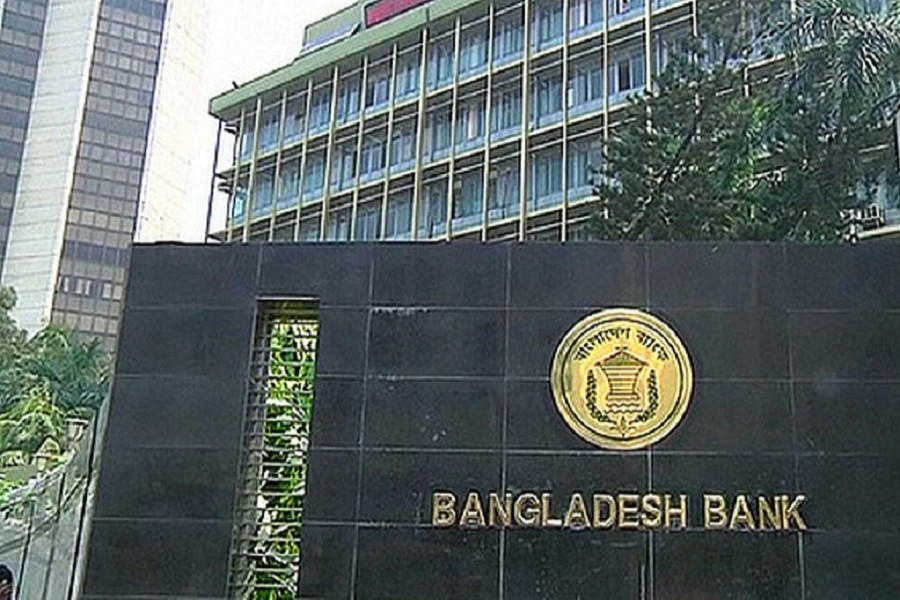The regulatory authority should ensure strict punishments in case of wrongdoings by banks, and afterwards should go for their forced merger and acquisition, if the problems prove to be of permanent nature.
It has been suggested in a study of Bangladesh Institute of Bank Management (BIBM), whose findings were released through launching a report on Thursday.
The draft study report was released at a research workshop titled - 'Exploring Merger and Acquisition in the context of the Banking Sector of Bangladesh'.
It was held at BIBM auditorium in the capital, with BIBM Director General Dr. Toufic Ahmed Chowdhury in the chair.
Meanwhile, the central bank has prepared three policy documents on -directed merger, purchase and assumption and bridge bank - as part of contingency planning for bank intervention and resolution framework.
Bangladesh Bank (BB) Deputy Governor S K Sur Chowdhury disclosed the policy measures while speaking at the workshop as the chief guest.
The BB deputy governor also said the policy documents have been prepared under contingency planning and bank intervention/resolution framework of the central bank, approved by its board of directors.
"We're always careful and alert regarding the issues, and always trying to maintain the balance in the banking sector."
He also said business restructuring, like - merger and acquisition, is a way to find out solution for the weak banks.
"It is a matter to consider with critical analysis and farsightedness whether we should go for arrangements like merger and acquisition in our banking sector or not. Shall we use it as a problem-solving tool only?"
Earlier in 2007, BB issued guidelines for banks/financial institutions, covering legal issues, proposal of merger/amalgamation, commencement of due-diligence, submission of due-diligence report, consent of shareholders, examination of draft scheme, and valuation of assets and liabilities etc to meet the demands for corporate restructuring.
"Let us now agree that still we cannot afford liquidation of a bank because of greater public or economic interest," Mohiuddin Siddique, Professor and Director (DSBM) of BIBM, said while presenting the report at the workshop.
He also said it means that the banks will continue getting the advantage of a forbearance policy, possibly for a long period in future also.
"So, some tools or measures should work firmly to address the high degree of moral hazards, created through the implicit guarantee given to the poor-performing banks," Mr. Siddique noted.
The biggest problem that the banking sector has been facing for a long period is high volume of non-performing loans (NPL), which is hovering around an unsatisfactory level of 10 per cent for the last five years, according to the study.
It also said lack of professionalism in borrower selection process, size and borrower-wise high concentration in credit portfolio, and weak enforcement status of debt recovery-related laws are thought to be largely responsible for the high percentage of NPL.
The researchers identified that lack of good governance is another big problem in the banking sector.
"We're aware of widespread interventions by the board members in the major areas of banking operations, including in recruitment and promotion-related issues, which reduce space for the top management to act independently."
Regarding the number of banks in Bangladesh, 72 per cent bankers expressed their opinions in favour of reducing the number of banks, while 11 per cent said the number is acceptable. The rest 17 per cent did not comment on the issue, according to the study.
Khondkar Ibrahim Khaled, A K Gangopadhya Chair Professor of BIBM, said the banks will turn into grocery shops, if more banks are allowed in future.
"One or two banks may fail, if the number of banks increases in future."
The former BB deputy governor also criticised 'proprietorship attitude' of some bank owners (directors), saying that professional bankers cannot act properly due to such attitude.
He also advised the bankers to raise voices against the move of increasing the number of directors from a single family to four from the existing two through amending the existing Banking Companies Act.
"The country's banking sector cannot run properly without political willingness," Md. Yasin Ali, Supernumerary Professor of BIBM.
Helal Ahmed Chowdhury, Supernumerary Professor of BIBM, said such workshop is an eye-opening initiative for policymakers and entrepreneurs.
Mr. Chowdhury also suggested the bankers to improve their level of efficiency and to apply due diligence while sanctioning loans for ensuring discipline in the country's banking sector.


